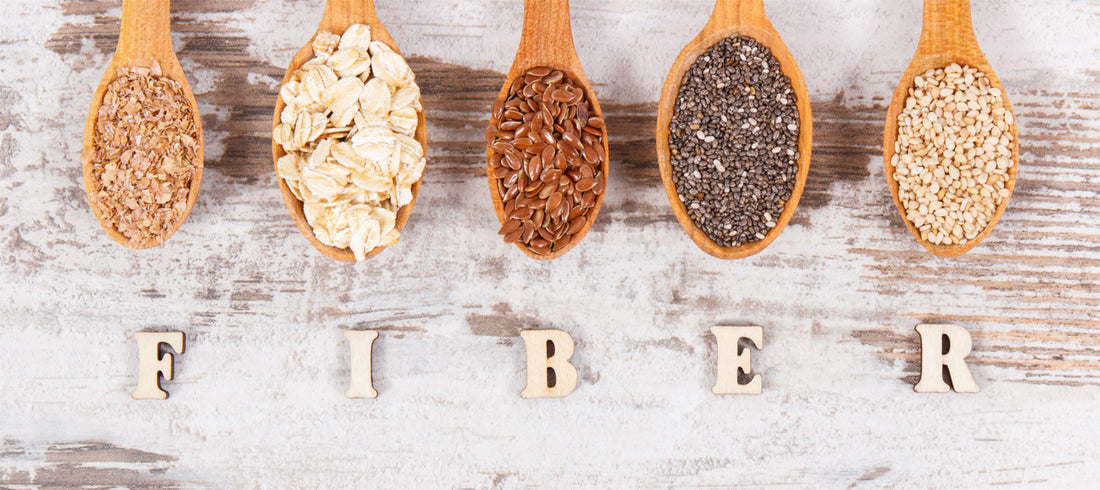Fiber is one of the most beneficial things you can consume for your health. It has the ability to help with digestive issues (including IBS, constipation, and diarrhea), weight management, cholesterol reduction and overall inflammation.
But what exactly is it?
Fiber is a type of carbohydrate from plant-derived foods, like beans, grains, vegetables and fruits that cannot be fully broken down by human digestive enzymes. While most carbohydrates are broken down by the body into sugar, fiber passes through the body undigested. In fact, most dietary fiber doesn’t get absorbed either. Instead, it stays within the intestine where it modifies digestion of other foods and affects the consistency of the stool.
While you should seek to increase your overall fiber intake, it’s important to know that there are two kinds of fiber: soluble and insoluble, each with its own unique benefits. The biggest differentiator and where each kind of fiber gets its name is from the ability to dissolve in water, or solubility. So soluble fiber can be dissolved in water, while insoluble fiber cannot.
The chart below has some more differences, the health benefits and what foods are good sources of each type. As you seek to add more fiber to your diet, vegetables are great starting point. Many of them contain both types of fiber and will provide you with benefits from each category. Another great option is adding a fiber supplement to your daily regimen.
|
Soluble
|
Insoluble
|
|
|---|---|---|
|
Solubility
|
Dissolves in water
|
Does not dissolve in water
|
|
Example Food Sources
|
Oats, nuts, seeds, beans, lentils, fruits such as citrus fruits, apples, berries, and avocados, and many vegetables such as brussels sprouts, artichokes, asparagus, broccoli, dark leafy greens, peppers, squash, carrots
|
Whole grain products, flaxseeds, rice, legumes (ie. beans, peas and lentils), nuts, and many vegetables such as cauliflower, carrots and green beans
|
|
Health Benefits
|
-Slows digestion and makes you feel fuller longer -Lowers cholesterol -Helps with weight loss & weight management -Improves blood sugar levels -Reduces diarrhea -Increases healthy gut bacteria (which can lower inflammation and aid digestion)
|
-Eases and prevents constipation -Good for colon health -Helps your body process & eliminate waste -Reduces your risk for some colorectal conditions, such as diverticulitis and hemorrhoids
|
|
How It Works
|
Attracts water and turns into gel which slows digestion
|
Speeds food through the digestive tract and adds bulk to prevent constipation
|
|
Composition
|
Consists of a group of substances that is made of carbohydrates
|
Comes from plant cell walls
|
Taylor Morgan, PA-C, RDN, LD, IFNCP
Physician Assistant, Registered Dietitian Nutritionist

